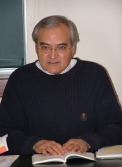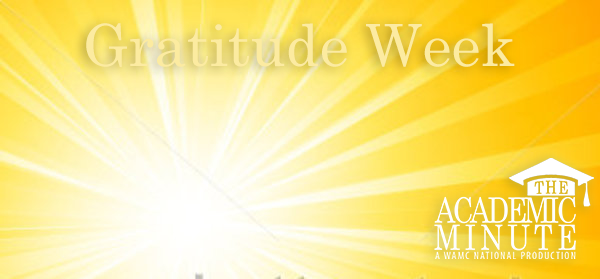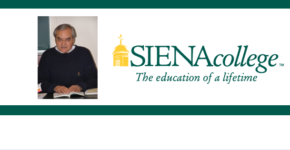 Are we thankful for the Earth?
Are we thankful for the Earth?
Raymond Boisvert, professor of philosophy at Siena College, explores whether we do enough to give back to the planet that gives us life.
Educated in Rhode Island, Switzerland, the University of Toronto and Emory University in Atlanta, Raymond Boisvert made his academic reputation with two books on the American philosopher John Dewey. Hired at Siena in 1984, he has taught a variety of courses including Classical American Philosophy, Asian Philosophy, the Philosophy of Religion and many sections of philosophy and the human being. For many years he was head of the college core, teaching in the first year course then known as the Foundations Sequence. Recently he has joined the teaching team for the new first year course, the First Year Seminar. The theme for that course, “Food, Values, Culture” reflects his new interest in the area of philosophy and food. Two of his books on that topic will be published in the next several years.

Gratitude and Giving Thanks
Thanksgiving is Pilgrims, turkey, football, and now, shopping. More basically, giving thanks is an act that defines humanity. Some religions make it central. The word “eucharist,” for example, means “thanksgiving.” Giving thanks is part of a pervasive human activity: gift exchange. Acknowledging receipt of a gift precedes giving thanks. So important is the pattern of give, receive, give back that some thinkers identify it as crucial for holding societies together. People who knit interconnections via gift exchanges create more stable communities than those whose only glue is external rules.
Ours is an age dominated by the contract. Contracts are entered into only when specific mutual benefits can be identified. Once the specified exchange is completed, the relationship ends. The gift and gratitude context, assumes asymmetry and continuation.
Take Mother Earth, whose bounty Thanksgiving celebrates. Humans already start out as beneficiaries. The earth’s gifts are given freely, not as the result of a contract. This initiates the cycle of give/receive/give back. How do humans fare in this regard? Not so well. Thanksgiving Day might find us offering verbal tokens of thankfulness to a divinity and to those who share our table. Mother Earth, we take for granted. Worse, we pervert the step of giving back. Giving in grateful return should find us acting in ways to enhance and benefit our most fundamental benefactor. Instead, our giving back involves just the opposite: activities that defile, pollute, diminish and destroy. The beneficiaries of bountiful gifts who celebrate a holiday called Thanksgiving thus reveal themselves to be deeply ungrateful.
Mother Earth, source of the gifts for which we give thanks, does not have much, herself, to be thankful for. We can change this, but it would involve giving thanks in deed, not just in words.

Comments
One response to “Raymond Boisvert, Siena College – Gratitude and Giving Thanks”
Thank you